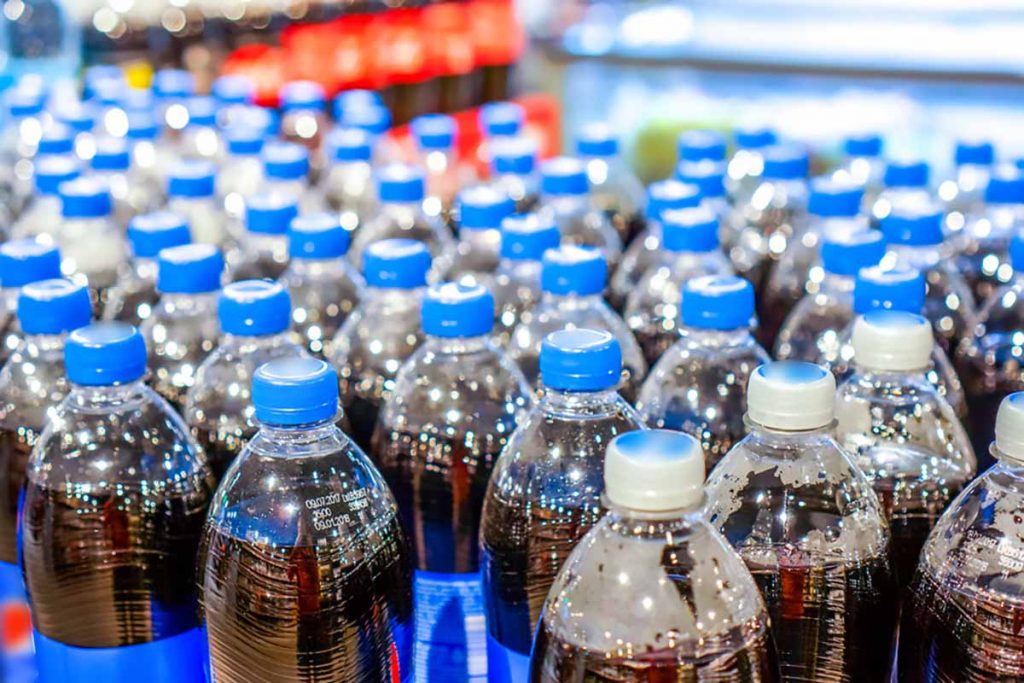
PepsiCo is increasing its use of 100% RPET bottles in several markets. | SunnyToys/Shutterstock
PepsiCo announced new objectives and shared its progress toward circular packaging targets in its 2021 environmental, social and governance report.
The company plans to eliminate fossil fuel-based plastic in all crisp and chip bags by 2030, with consumer trials starting in European markets this year. These trials include using “renewable plastic” in a Lay’s chips range of products in France, sourced from by-products of plants, such as used cooking oil, or waste from paper pulp, and a recycled plastic pilot in the United Kingdom by the end of 2022.
Bottles will be made of 100% RPET, excluding the cap and label, in 10 European markets by the end of this year. In 2021 and 2022, PepsiCo launched 100% RPET beverage products in Australia, New Zealand, Vietnam and Argentina. Overall, it is transitioning at least some brands to 100% RPET in 22 global markets.
In the U.S., LIFEWTR is already sold in 100% RPET bottles and Pepsi Zero Sugar will be sold in 100% RPET bottles by the end of 2022. The company plans to convert all Pepsi-branded products in the U.S. to 100% RPET bottles by 2030, the report noted.
“While packaging is an essential component of our business – making PepsiCo products convenient, more affordable and easy to distribute – we share the concern over the impact of packaging waste,” the report said. “Our broad-based strategy includes reducing the plastic we use, driving recycling and use of recycled materials and reinventing our packaging to use new renewable materials or drive growth in low- or no-packaging formats.”
Overall, 87% of PepsiCo-owned drinks in the European Union are packaged in 100% recycled or renewable plastic, the report said, with a goal of 100% of packaging being recyclable, compostable, biodegradable or reusable by 2025. Another goal is to cut use of virgin plastic from non-renewable sources by 50% by 2030. In 2021, PepsiCo hit 5%.
“We are exploring renewable, non-fossil-fuel-based sources for packaging materials, such as plant-based materials that are safe, efficient and have a lighter carbon footprint than fossil-fuel based plastics,” the report said.
Since 2018, PepsiCo and the PepsiCo Foundation have invested more than $100 million in global recycling, including $15 million in the Closed Loop Partners’ Leadership Fund and $35 million to help create the Closed Loop Local Recycling Fund for small-scale, modular recycling systems in underserved U.S. communities.
“Achieving these ambitious goals requires investment and innovation,” the report said. “We face challenges from the limitations of existing technology and regulations. But our commitment to continue to strive toward these goals is unwavering.”
More stories about brand owners
- Coke bottler’s switch to clear PET provides lessons learned
- Beverage and bag producers fined for recycled resin failures
- Pepsi reduces global PCR goal, extends target date